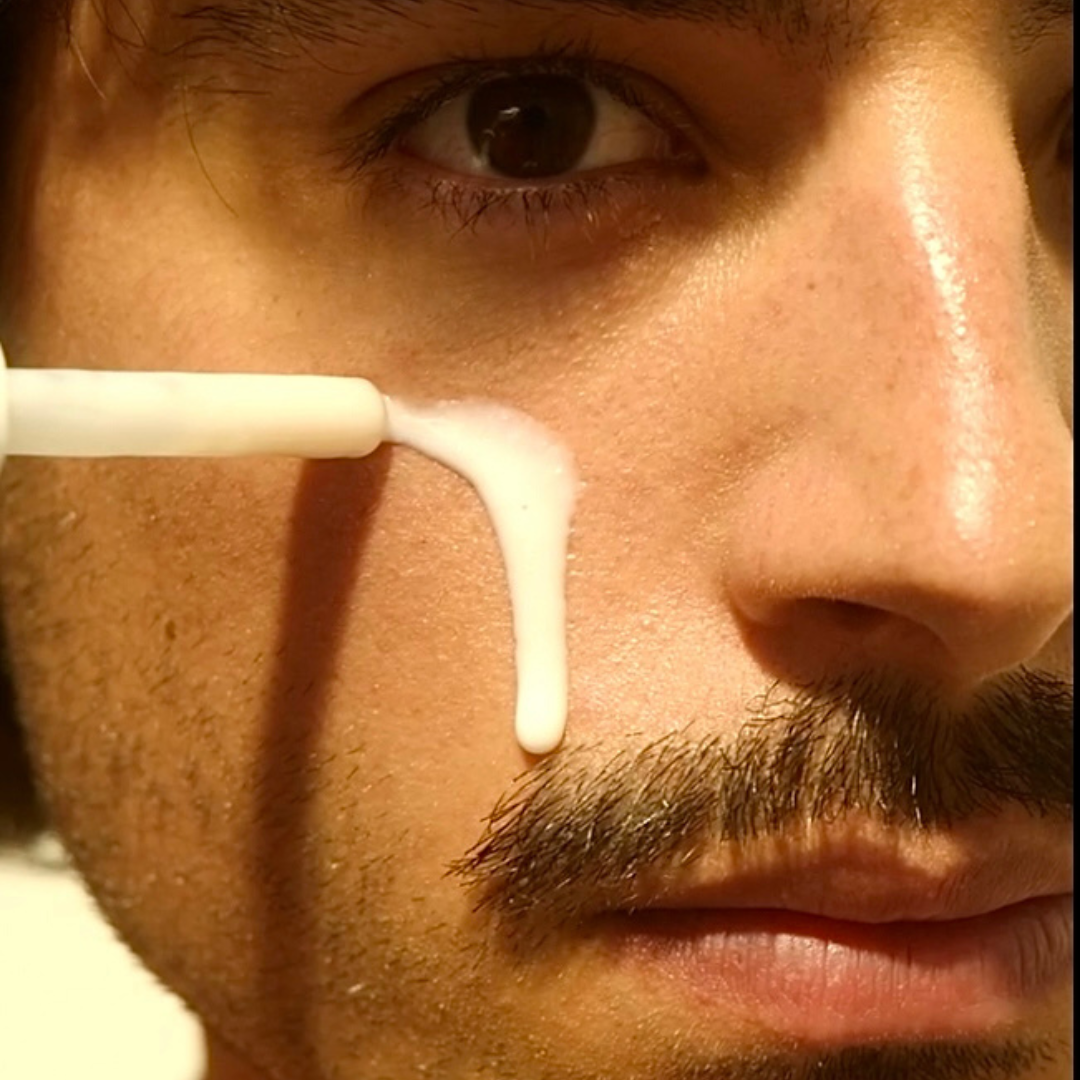
Which serum should I use for oily skin?
Share
Why use a serum?
Using a serum in your skincare routine can offer several benefits. Here are a few reasons why you might consider incorporating a serum into your routine:
-
High concentration of active ingredients: Serums are lightly formulated and generally contain a higher concentration of active ingredients than traditional moisturizers. This means that serums can deliver more targeted and effective results to treat specific skin problems, such as wrinkles, hyperpigmentation or dehydration. For combination and oily skin, exfoliating serums exist to combat the causes of blackheads and pimples.
-
Light texture: Serums generally have a light, non-greasy texture, making them ideal for all skin types, including oily or acne-prone skin. They are quickly absorbed by the skin and can be used underneath other skincare products, such as moisturizers or sunscreens.
-
Intense hydration: Some serums are formulated to offer intense hydration and moisture retention, helping to maintain the skin's moisture balance. This can be particularly beneficial for dry or dehydrated skin.
-
Targeted treatment: Serums are often designed to target specific skin problems, such as fine lines and wrinkles, hyperpigmentation, acne, dilated pores and so on. By choosing a serum tailored to your specific needs, you can achieve more effective results in treating these problems.
What ingredient should you look for in your serum when you have oily skin?
When you have oily skin, you should look for specific ingredients in a serum to help controlexcess oil, reduce enlarged pores and balance sebum production. Here are some ingredients to look for in serums for oily skin:
-
Exfoliating acids: Exfoliating acids likesalicylic acid (BHA) tighten and unclog pores, help remove dead skin cells and reduce imperfections associated with oily skin, such as acne and blackheads.
-
Niacinamide (vitamin B3): Niacinamide is a versatile ingredient that can help regulate sebum production, reduce the appearance of pores and improve skin texture. It can also help soothe and calm the skin, which is beneficial for skin prone to redness and inflammation.
-
Hyaluronic acid: Although oily skin may produce excess sebum, it can still be dehydrated. Hyaluronic acid is an effective moisturizer that draws moisture into the skin without clogging pores, making it an ideal ingredient for maintaining skin hydration without adding a feeling of heaviness.
-
Green tea extract: Green tea is rich in antioxidants that help protect the skin against damage caused by free radicals. What's more, it has anti-inflammatory properties that can help soothe and calm oily skin prone to redness and irritation.
-
Clay: Serums containing clay can help absorb excess sebum and mattify the skin, which is beneficial for controlling shine and reducing the appearance of pores.
When choosing a serum for oily skin, be sure to look for non-comedogenic products that won't clog pores, and avoid heavy formulations that could aggravate sebum production. It's also advisable to consult a dermatologist or skin care professional for personalized recommendations based on your specific needs.

How to use a serum
-
Cleanse your skin: Before applying the serum, make sure your face is clean. Use a gentle cleanser suited to your skin type to remove dirt, make-up and impurities.
-
Apply serum: After cleansing and toning your skin, apply a few drops of serum to your skin. A small amount is generally sufficient, as serums are concentrated. You can also use a pipette or pump if the serum comes with an applicator. Gently pat the serum into your face and neck. Avoid rubbing vigorously, as this can irritate the skin.
- Gently massage: Once you've dabbed the serum onto your skin, you can gently massage it in with upward circular movements. This helps stimulate blood circulation and aids absorption.
-
Leave on: Allow the serum to penetrate your skin for a few minutes before applying other products. This allows the serum's active ingredients to work effectively.
What other beauty care products should I use for oily skin?
For oily skin, it's important to use suitable products that control excess sebum while moisturizing and balancing the skin. Here are some recommended beauty treatments for oily skin:
-
Gentle exfoliating gel cleanser: Use a gentle cleanser specially formulated for oily skin to remove excess sebum, dirt and impurities without drying out the skin. Look for cleansers containing salicylic acid or glycolic acid to help unclog pores. For oily skin, a morning and evening application is recommended. Thanks to this active ingredient or glycolic acid, a person with oily skin will find their skin smooth and unclogged within just a few days of application!
-
Astringent toner: Use an astringent toner after cleansing to tighten pores and control sebum production. Toners based on witch hazel, apple cider vinegar or salicylic acid are beneficial for oily skin.
-
Mattifying serum: Apply a light mattifying serum that helps regulate sebum production while providing light hydration. Hyaluronic acid- or niacinamide-based serums are often recommended for oily skin.
-
Purifying masks: Use a purifying mask once or twice a week to remove excess sebum, impurities and toxins from the skin. Clay, charcoal or fruit acid masks are effective for oily skin.
-
Light, mattifying moisturizing day cream: Choose a light, non-comedogenic moisturizing cream that will hydrate the skin without clogging pores. Opt for gel formulas or moisturizing lotions that are rapidly absorbed by the skin.
-
Sun protection: Always use a broad-spectrum sunscreen with SPF 30 or higher, even if you have oily skin, to protect your skin from external aggressors. Look for non-comedogenic, gel-based formulations to avoid clogging pores.
-
Gentle exfoliation: Exfoliate your skin once or twice a week to remove dead skin cells and prevent clogged pores with active iingredients. Opt for gentle exfoliants based on fruit acids or enzymes that don't excessively dry out the skin.

By following a skincare routine tailored to oily skin, you can help reduce excess sebum, minimize pores and maintain balanced, healthy skin.

